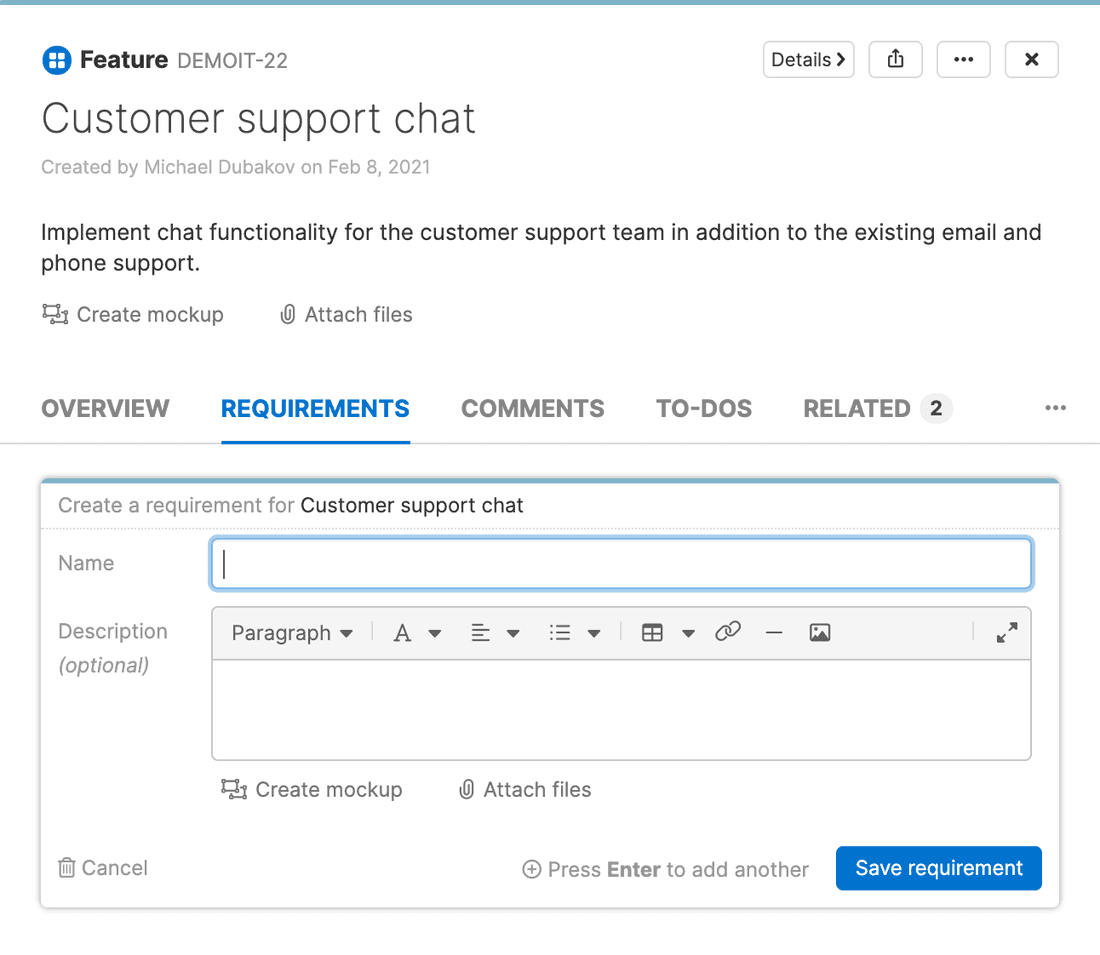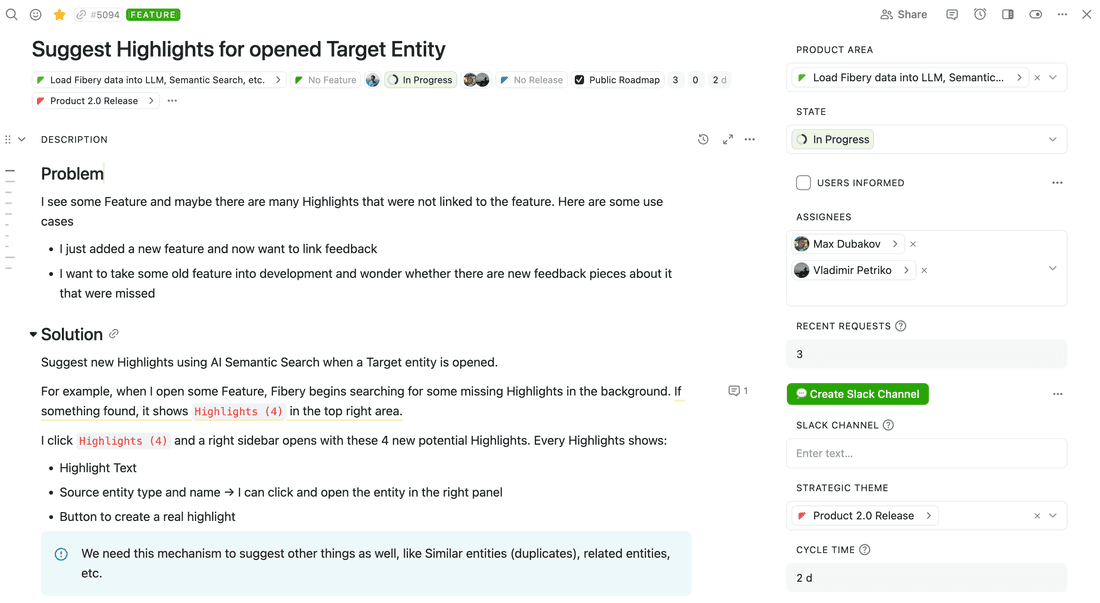How to Write Beautiful Feature Specs in Fibery
Features specifications are not easy. They are especially hard when your tool impedes your thoughts. Surprisingly, specialized product management software makes it so. Productboard, Aha! and most other tools just don’t support good docs.

As a result, product managers write specifications somewhere else: Google Docs, Confluence, Notion, etc. The problem here is that a spec is separated from a feature itself. It just makes everything more complex: all people have to have access to the wiki, you have to put links from features to specs, you have to discuss specs somewhere (but there are two places, where it should be done?).
Furthermore, this disjointed process often leads to miscommunication and delays in product development. The need for a unified platform, where specs and features can coexist and be easily accessible to all team members, is therefore paramount. It’s about time we rethink the traditional approach and streamline the product management process.
The solution is obvious:
Feature spec should be inside Feature
You should use a single tool for Feature management and Feature specification. For example, in Fibery every Feature has a collaborative area where you can write text, add images, link Tasks, discuss things and quickly break down work. Basically, this is a wiki page inside every Feature! With Fibery, you can transition from planning to execution, keeping everyone in the loop.

Insert diagrams and images
Images and diagrams help to understand what is all about, and understanding is your top priority as a spec creator. Understanding creates shared context, leads to faster solutions and fewer errors in product development.
In Fibery you can add images and create diagrams quickly. Take a look at this spec with some embedded. Note that you can change a diagram right here, without switching the context and leaving the tool! You may expand it to the full screen if you need to work with it and return to the feature spec really fast.
Collaborate & discuss
Some tools don’t support collaborative editing. It leads to huge problems for any remote product teams or even colocated large product teams. You never sure whether some Feature is in the editing mode by another person. Collaborative editing is an absolute must-have for the spec creation process.
Specs are not set in stone. There are some unclear points and some controversial things that demand clarification and discussion. Some tools just have a single comments thread for a Feature, but in reality you want to refer a very specific place in the spec, so inline comments are much better here.
It is also nice to review all comments in a single place, receive notifications about replies and resolve comments. Fibery has all that.
Link other relevant entities (Features, Ideas, Insights)
It’s handy when you can quickly add a reference to another relevant entity, like to some Idea or other Feature. It can add some perspective to the spec and form a wider context for a spec reader. It is especially important in a product vision document, but in a functional specification it’s still relevant. Sure, you can add links in any tool, but if it’s just an URL, you have to switch context, find this thing, copy the URL and add the link. It’s much faster to just type some keywords and find relevant entity:
Links in Fibery are bi-directional, so you will see them from both places automatically.
Create linked entities fast
When some high level specification is ready, the next step is usually to break it down into smaller things, like Features or Ideas. You can create them one by one, but the better process is to brainstorm the list of Ideas with the product team, write it as a text list, and then magically convert this text list into a real Ideas list. Here we have GIST process and create Ideas for a Goal:
Specs importance are often underestimated. In Fibery we try to make this experience enjoyable and effective. If you are a product manager or a product owner, I bet you will like it.
Conclusion
The key points to consider are:
- Using separate tools for features tracking and features specifications creates complexity and delays in product development.
- A unified platform like Fibery allows for seamless integration of feature management and specifications.
- Inserting interactive diagrams in feature specs enhances understanding.
- Collaborative editing and inline comments facilitate real-time collaboration and clarification.
- Linking relevant entities provides context and improves navigation.
- Fibery’s fast creation of linked entities streamlines the breakdown of specifications.
By adopting Fibery, product managers can streamline the feature specification process and enhance collaboration within their teams.
Psst... Wanna try Fibery? 👀
Infinitely flexible product discovery & development platform.